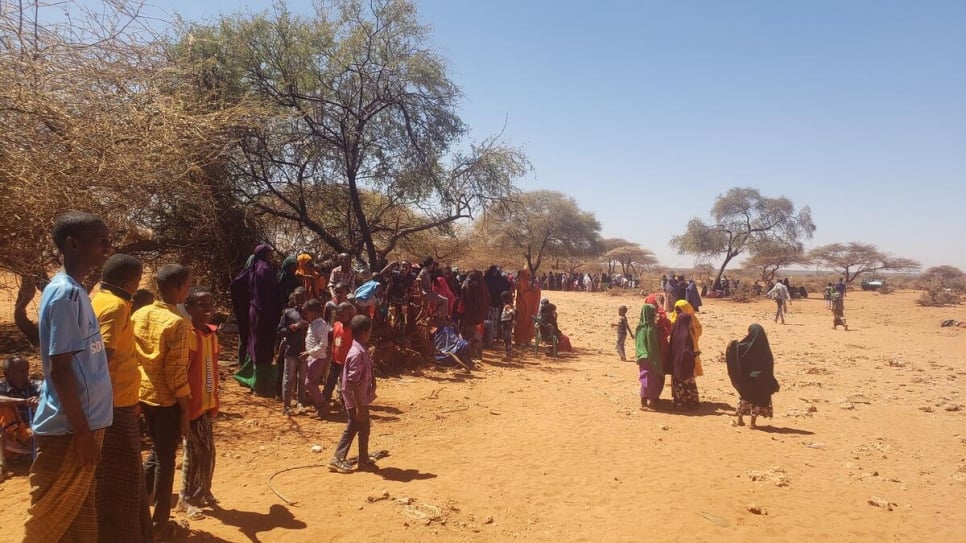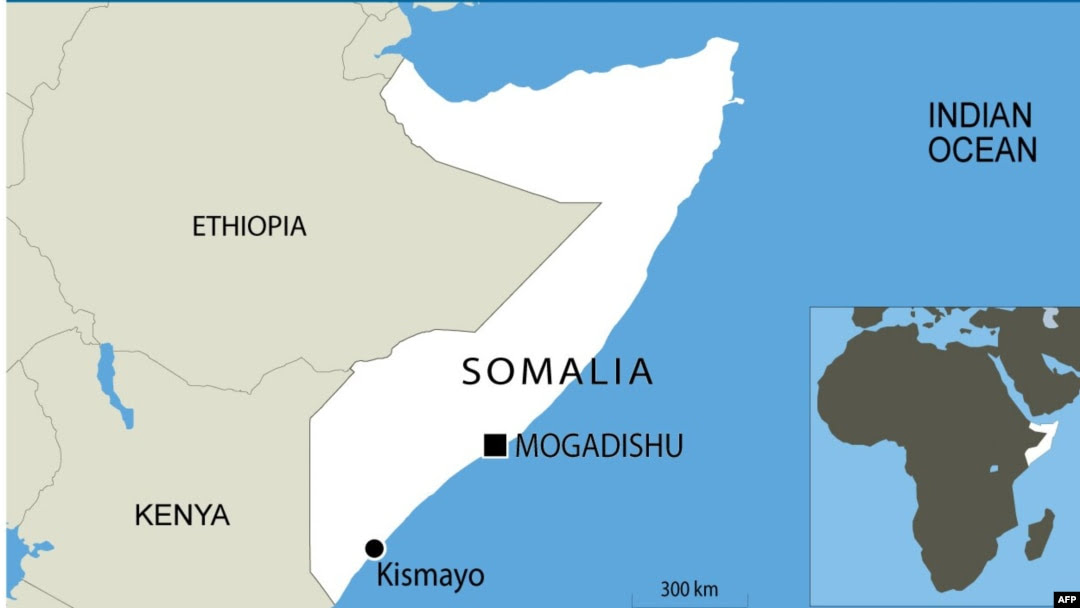More than 60,000 Somalis, mainly women and children, have fled to Ethiopia’s Somali region in the past few weeks to escape clashes and insecurity in the city of Laascaanood, in Sool region. More than half of them arrived earlier this week.
Exhausted and traumatized, they have arrived with very little, only taking what they could carry. Women told staff from UNHCR, the UN Refugee Agency, that they had to sell their belongings to pay for transportation to reach safety. Many of them have lost loved ones in the clashes or have been separated during flight.
Families have temporarily settled across more than 13 locations in the towns of Bookh, Galhamur and Danot Woredasiin in the Doolo zone in Ethiopia’s Somali region. In an extremely remote area with a limited humanitarian presence, local communities in Doolo have generously welcomed the refugees, sharing whatever resources they have. But these are quickly depleting as an average of 1,000 people continue to cross into Ethiopia each day.
The refugees are hosted in some of the areas in the country worst hit by the drought and the impact of climate change, following five consecutive failed rainy seasons, where resources are already overstretched.
With limited options, many newly-arrived refugee families have resorted to sheltering in schools and other public buildings while others have no choice but to sleep outside. Many urgently need food and nutritional support, water and sanitation facilities, as well as specialized support for people with specific needs.
In response to this sudden influx, UNHCR is working with the Ethiopian Government’s Refugees and Returnees Services (RRS) and regional authorities, together with UN and NGO partners, setting up temporary reception centers and providing immediate life-saving aid. Relief items, including blankets, jerry cans, buckets, kitchen sets, plastic sheets and mosquito nets, have already been distributed to over 1,000 vulnerable families and UNHCR aims to reach another 9,000 families in the coming days.
Upon arrival, the refugees are medically screened and initially registered before relocation to surrounding communities or designated sites. Formal registration will be conducted at a later stage which will provide more accurate population figures.
Inside Somalia, more than 185,000 people have been displaced from Laascaanood town and its surrounding areas since early February. According to local authorities, displaced families have settled in 66 sites within Somaliland while others have crossed into the Puntland region in northern Somalia and other villages bordering Ethiopia.
As an initial response to these internally displaced, UNHCR, through partners, will distribute relief items to 3,000 families in targeted locations and cash assistance is being mobilized to reach 42,000 people for a period of three months once the security situation allows access to the area.
UNHCR is calling for all parties to respect the safety of civilians and for additional funding support to meet the needs of these newly displaced.
(Source፡ UNHCR)



